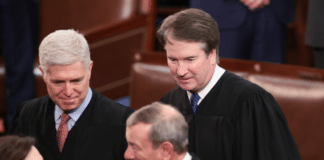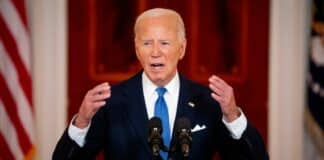The Vatican reported that Pope Francis died after suffering a stroke, which led to heart failure. While the media and liberal commentators praised him as a reformer and a “pope of the people,” many conservative Catholics viewed his tenure as a period of confusion and doctrinal compromise.
From the beginning, Francis distinguished himself with a folksy tone and a focus on economic and environmental issues, often delivering pointed critiques of capitalism and Western prosperity. He frequently pushed themes more in line with progressive politics than traditional Church teaching, drawing the ire of many faithful Catholics who sought clarity and consistency amid growing cultural instability.
He was elected in March 2013 following the resignation of Pope Benedict XVI, a conservative theologian who had worked to reaffirm traditional doctrine. In contrast, Pope Francis emphasized humility and simplicity, opting to live in the Vatican guesthouse rather than the Apostolic Palace, and using his platform to embrace marginalized groups and promote dialogue — sometimes at the expense of clear moral teaching.
Francis’ final public appearance came on Easter Sunday, when he offered a blessing to crowds in St. Peter’s Square. Just days earlier, he had met with U.S. Vice President JD Vance. His health had been declining for some time, exacerbated by a chronic lung condition and a lengthy hospitalization earlier this year for double pneumonia.
Throughout his papacy, Francis prioritized global issues like immigration and climate change. He softened the Vatican’s tone toward LGBTQ+ individuals, pushing a message of “welcome” that, for many conservatives, seemed to blur doctrinal boundaries rather than reinforce them.
The Argentine-born Jorge Mario Bergoglio led the Catholic Church through several turbulent events, including the global COVID-19 pandemic. In one widely publicized address to an empty St. Peter’s Square during lockdowns, he declared, “We have realized that we are on the same boat,” urging global unity over what he saw as economic inequality and social injustice.
However, his approach to Church governance left many traditional Catholics disillusioned. From his crackdown on the Latin Mass to his mixed messaging on key issues like abortion and communion for pro-abortion politicians, Francis’ pontificate will be remembered as a divisive chapter in the Church’s long history.
Now, as Catholics around the world mourn, the Church must look ahead to what kind of leadership will follow — and whether the next pontiff will return the Church to a clearer, more consistent voice on matters of faith and morality.





